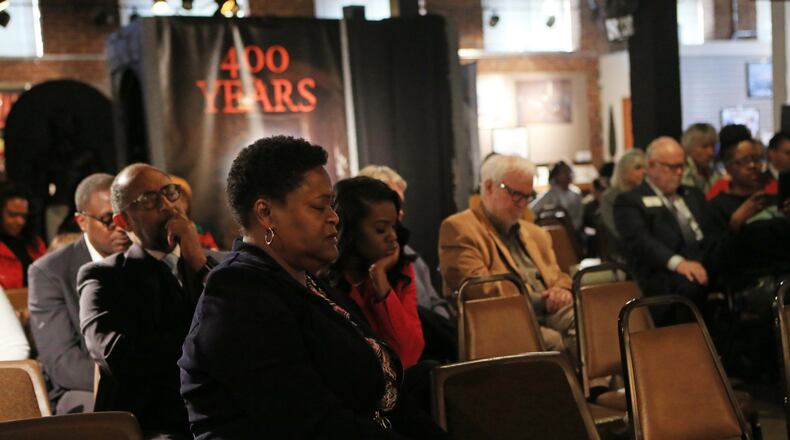Mary Smiley grew up in Los Angeles, far from the violence she saw against other black people during the civil rights movement in the South, but she saw leaders like John Lewis on the television and heard her parents talking about what they meant for America.
“I’m sorry that he’s sick because I have seen a lot of the leadership pass on,” said Smiley, 68. “They laid the groundwork.”
She, her daughter and grandchildren were among about 40 well-wishers, most of them African American and older, who gathered at the APEX Museum on Atlanta’s Auburn Avenue Sunday afternoon to hold a prayer vigil for Lewis. The veteran congressman and civil rights legend announced late last month that he had stage 4 pancreatic cancer. Sounding defiant as ever, the Democrat said then that he would continue his work in the nation’s Capitol, where he has represented Atlantans and Georgia for 32 years. He said might miss a few votes as he undergoes treatment, but he planned to run for re-election.
Pancreatic cancer is the nation’s third-leading cause of cancer deaths. About three of four who have it die within a year of diagnosis, though medical advances aimed at preventing the spread to other organs and at inhibiting symptoms have shown promise.
Lewis, 79, recently told The Atlanta Journal-Constitution that new treatments are "no longer debilitating as they once were," which has given him hope. He said he would take counsel from friends and colleagues who have endured similar situations and would be "obeying" his doctors.
It was a rare utterance of acquiescence from a defiant man who helped to spark a political backlash against Jim Crow laws, inspiring the Voter Rights Act of 1965. The Alabama native was among those severely beaten by law enforcement earlier that year while trying to march across the Edmund Pettus Bridge in Selma, Alabama. It was a pivotal point of the civil rights movement that came to be known as “Bloody Sunday.” The chairman of the Student Non-Violent Coordinating Committee was already a well-known figure and key ally of the Rev. Martin Luther King Jr., having been the youngest speaker at the 1963 March on Washington.
He was elected to the U.S. House of Representatives in 1986, and has been reelected 16 times. No serious candidate has emerged to challenge him this year in the heavily Democratic 5th Congressional District. He has remained a provocative presence in Washington, including being among President Donald Trump's fiercest critics. Dubbed by allies as the "conscience of the House," Lewis boycotted the president's inauguration, prompting Trump to slam Lewis' metro Atlanta district as a "crime infested" area in "horrible shape." Lewis has been an outspoken proponent of impeachment, saying neutrality would "betray" the Constitution. Despite his partisanship, Republicans such as Johnny Isakson respect him. The just-retired U.S. senator from Georgia recently penned a column in the AJC in which he called Lewis "my good friend."
At the APEX Museum, the oldest black history museum in Atlanta, a handful of well-wishers, including City Council President Felicia Moore, led a vigil with overtones of a Sunday sermon in remembrance of long-ago events. Like others, Moore spoke of being a child when Lewis was leading marches.
“You don’t quite understand it but you know something’s going on,” she said, “and you recognize at some point that it’s about you, too.”
Among those who came to watch was a man who is something of a legend himself. Charles Person, 77, was beaten by Klansmen in 1961. He was one of the first 13 Freedom Riders, a movement that challenged segregation on public buses. Months after his beating on a bus, Person enlisted in the Marines, then served in Vietnam, in part because his mother thought he would be safer there.
“My mother was afraid I was going to get killed if I stayed in the movement,” he said in an interview. “I think we were given an opportunity to change the world, and I think we did make an impact.”
About the Author





